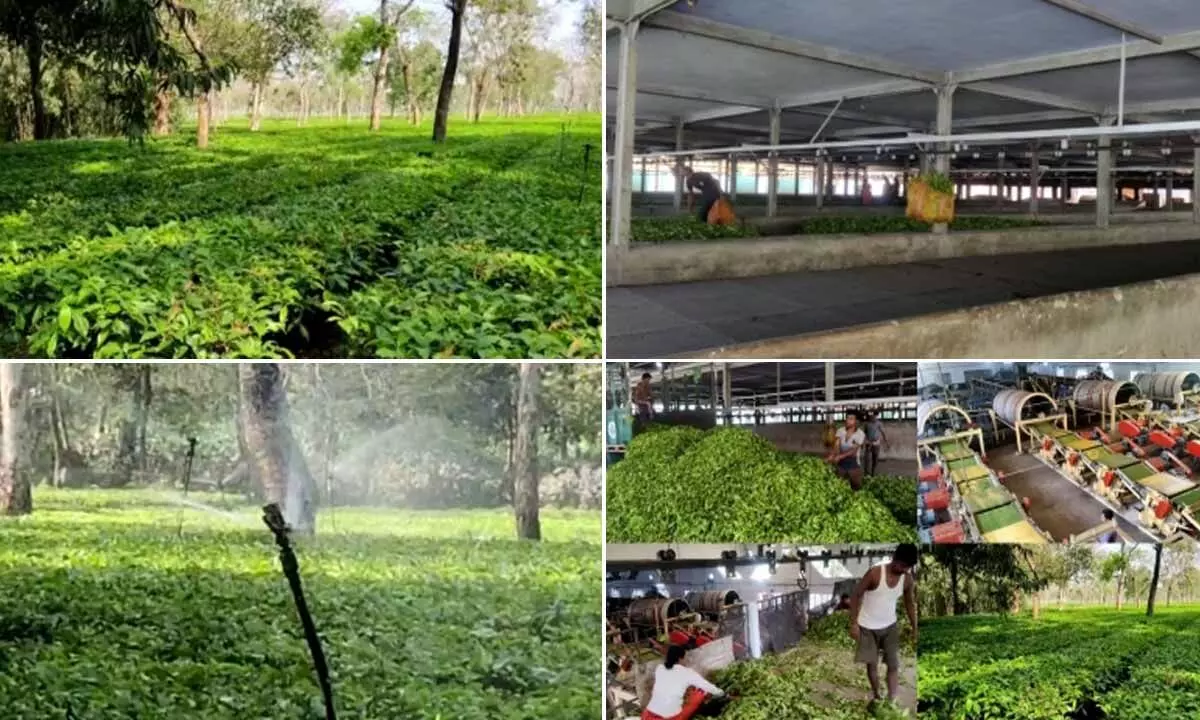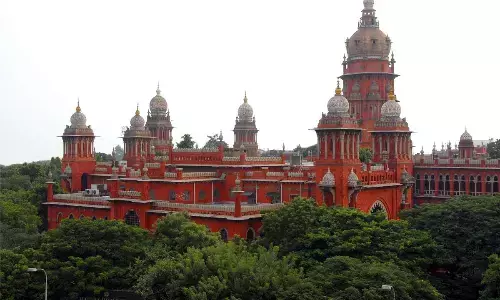With Kishanganj becoming a big tea producer, Bihar govt mulls tea city plan
Share :

With Kishanganj becoming a big tea producer, Bihar govt mulls tea city plan
Kishanganj, Bihar's border-sensitive district, adjacent to neighbouring West Bengal as well as South Asian countries such as Nepal and Bangladesh, is now slowly emerging as a hub for tea production across India.
Kishanganj: Kishanganj, Bihar's border-sensitive district, adjacent to neighbouring West Bengal as well as South Asian countries such as Nepal and Bangladesh, is now slowly emerging as a hub for tea production across India.
This district is significant for all political parties in the country as in recent times Kishanganj has been recognised as one of the fastest emerging tea producing centre in India.
In terms of tea production, Kishanganj has carved its own identity on the national and international map.
As people are attracted towards tea production in Kishanganj, the scope of tea cultivation is also immense.
At present, tea gardens are grown on nearly 50,000 acre of land in Kishanganj. Locals claim that the quality of tea produced here is such that it is in huge demand across different states of the country.
According to the officials of State Agriculture Department, five blocks of Kishanganj district -- Kishanganj, Pothia, Thakurganj, Bahadurganj and Dighalbank -- have fertile soil and climate which is best suitable for tea plantation.
Garden experts say that the tea gardens located in Kishanganj are new due to which the quality of tea produced is of best quality.
According to the locals in Kishanganj, a tea gerdening was started on around five acre of land on experimental basis in a village under Pothia block in 1993.
What started as an experiment in the beginning has now flourished into a profitable business. Today right from small farmers to large tea industrialists, everybody is taking a keen interest to produce tea in Kishanganj.
An official of Bihar Tea Plants Association says that nearly 1.50 lakh MT (metric tonne) of green tea leaves are produced in the area every year, out of which 33,000 metric tonne tea is processed.
At present, there are 12 tea processing units in the district, the official added.
District Horticulture Official Rajni Sinha claims that today there is no migration of labourers from this area due to tea plantations.
She said that as farmers get government benefits for tea cultivation, they turn towards tea farming, instead of growing paddy and wheat in their fields. She said that more than 5,000 farmers are associated with tea gardens in Kishanganj.
Raj Karan Daftari, who started a tea garden in Kishanganj, says that he started tea farming here thinking that if tea could be grown in Assam and West Bengal, then why not in Kishanganj where similar kind of weather conditions prevail.
He said that today his entire family is associated with tea plantation only.
Bihar Agriculture Minister Kumar Sarvjeet also said that not only Kishanganj, the surrounding areas are also favourable for tea cultivation. He added that the prospects of tea industry in the state are "extremely bright".
"Continuous efforts are being made to promote tea industry in the state. At present, Bihar ranks fifth in the country in terms of the quality of tea gardens in the country," the Minister added.
However, he feels unhappy that only few people know that tea is produced in Bihar.
He plans to promote the production of tea products in the state by putting up large hoardings at national highways, state highways and petrol pumps so that people could know that tea is grown in Bihar.
"We (state government) are trying to prepare a policy to popularise Kishanganj tea at the national and global level," the Minister added.
The demand of tea traders is regarding the processing units in Kishanganj.
Traders say that today there are only 12 processing units in Kishanganj, while at least 50 processing units are needed.
Tea industrialist Rajeev says there are less tea processing units in Kishanganj.
"Due to this, we have to send tea leaves to the neighbouring states for processing. The tea leaves get spoiled during transportation."
According to local tea traders, production of tea in Kishanganj is increasing continuously. The dream of these traders is that Kishanganj be identified as the 'Tea City' of India.









